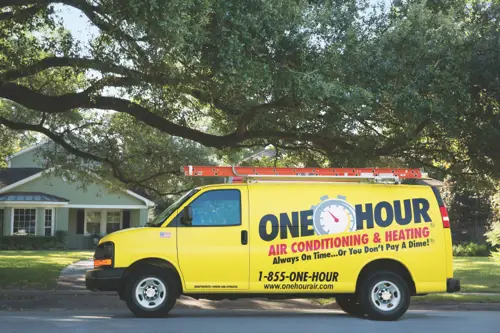 What Are the Most Common Airborne Allergens in Lakeland, FL?
What Are the Most Common Airborne Allergens in Lakeland, FL?
Ever wonder why you’re always sneezing or why your eyes get so itchy? Well, it’s probably allergies, and in Lakeland, we’ve got plenty to go around!
Allergies happen when the immune system reacts to foreign substances known as allergens. Common allergens include pollen, dust mites, mold spores, pet dander, and certain foods. When the immune system identifies an allergen, it overreacts by producing antibodies, leading to symptoms like sneezing, itching, and inflammation.
Types of Allergic Reactions
So, what’s the deal with allergies anyway? Allergic reactions can range from mild to severe. Mild reactions may involve symptoms such as sneezing, itching, and a runny nose. Severe reactions can include anaphylaxis, a life-threatening condition that requires immediate medical attention.
Seasonal allergies, also known as hay fever or allergic rhinitis, are triggered by pollen from trees, grasses, and weeds. Symptoms typically include sneezing, congestion, and itchy eyes.
Florida-Specific Allergy Information
Florida’s mild winters and warm summers result in an extended blooming period for many plants. This extended season means allergens are present for much of the year, causing persistent and strong allergies for many residents.
In Lakeland, the high humidity and frequent rainfall further contribute to rolling out the red carpet for mold, another common allergen.
The Common Airborne Allergens in Lakeland, FL?
In Lakeland, we’ve got a perfect storm for allergies. Our warm weather means plants are partying all year round, pumping out pollen like there’s no tomorrow.
Oak and Pine Pollen
In Lakeland, oak and pine pollen are prevalent from December to May and again from October to November. These trees release significant amounts of pollen, which can cause allergic reactions in sensitive individuals.
Grass Pollen
Grass pollen season spans from April to October. During this time, various grass species are living their best life by releasing pollen into the air, triggering allergic reactions in many people.
Weed Pollen
Weed pollen is another significant allergen in Lakeland. The main culprits are ragweed, dog fennel, sorrel, and dock.
* Ragweed and Dog Fennel: These weeds release pollen from May to December. Ragweed, in particular, is known for its high pollen production and widespread impact.
* Sorrel and Dock: These weeds pollinate from March to July, contributing to the overall pollen count in the air.
Ragweed’s Prevalence and Impact
Ragweed is especially problematic due to its high pollen production. A single ragweed plant can release up to a billion pollen grains in one season. These tiny grains can travel long distances, affecting people far from the original source.
Ragweed pollen is known to cause severe allergic reactions, including sneezing, runny nose, and itchy eyes.
Managing Weeds and Mold
Professional Weed Control
Managing weeds is a great way to cut down the pollen levels. Professional weed control services can help eliminate or significantly reduce the presence of allergenic weeds in your yard.
Mold’s Habitat and Spread
Mold thrives in damp, humid environments. It can grow on various surfaces, including walls, ceilings, and under sinks. Mold spores can become airborne, leading to allergic reactions when inhaled. To prevent mold growth, keep indoor areas dry and well-ventilated.
Prevention Measures for Mold Growth
- Fix leaks promptly to prevent water accumulation.
- Use dehumidifiers to maintain indoor humidity levels below 50%.
- Clean and dry any areas affected by water damage.
- Regularly clean areas prone to mold growth, such as bathrooms and basements.
Other Seasonal Allergy Triggers
Smoke from Fall Campfires
Smoke from fall campfires can exacerbate asthma and trigger allergic reactions. The particles in the smoke can irritate the respiratory system, leading to coughing, wheezing, and shortness of breath.
Insect Bites and Anaphylaxis
Insect bites, particularly from bees, wasps, and ants, can cause severe allergic reactions known as anaphylaxis. Symptoms include swelling, difficulty breathing, and a drop in blood pressure. Immediate medical attention is necessary in such cases.
Tips to Manage and Control Fall Allergies
* Staying Indoors During High Pollen Counts: Limit outdoor activities when pollen counts are high. Keep windows and doors closed to prevent pollen from entering your home.
* Cleaning and Maintenance Tips: Regularly clean vents, change air filters, and use dehumidifiers to reduce indoor allergens. Install HEPA filters to capture airborne particles.
* Installing HEPA Filters: High-Efficiency Particulate Air (HEPA) filters can trap small particles, including pollen, dust mites, and mold spores, improving indoor air quality.
How to Combat Common Airborne Allergens in Lakeland
* Air Conditioning and Regular HVAC Cleaning: Air conditioning helps filter out allergens. Regular HVAC maintenance keeps the system clean and functioning correctly.
* Use of HEPA Filters and Air Filtration Units: These devices can significantly reduce indoor allergen levels.
* Minimizing Indoor Plants and Managing Humidity: Indoor plants can harbor mold and dust. Keep indoor humidity levels low to prevent mold growth.
* Regular Cleaning to Prevent Mold: Regularly clean areas prone to mold growth, such as bathrooms and basements. Use mold-killing cleaners and ensure proper ventilation.
Preventing Common Airborne Allergens in Lakeland with Service Minds
Living in Lakeland, FL, brings unique allergy challenges due to the extended pollen seasons and high humidity levels. If you want to manage these allergens really well, you’ll need a combination of professional services, diligent home maintenance, and lifestyle adjustments.
Remember, if you’re really struggling, it might be time to call the pros. At One Hour Air Conditioning & Heating in Lakeland, FL, we’re all about helping you breathe easier. We can hook you up with top-notch air purification systems and bring the best solutions to improve your indoor air quality.